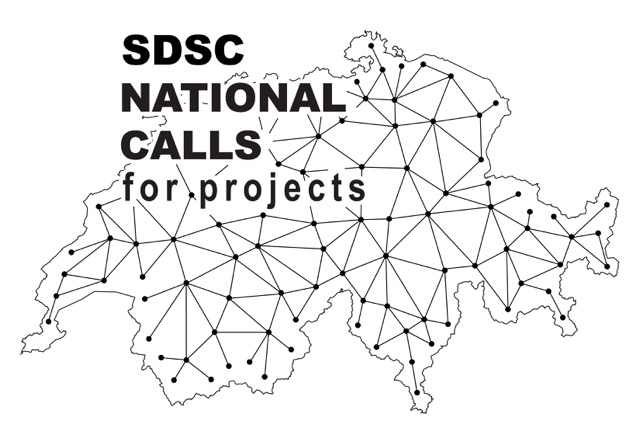
Sanfilippo: Drug Repositioning
Applying deep learning to repurpose drugs for the Sanfilippo syndrome treatment.

Abstract
Sanfilippo syndrome, or mucopolysaccharidosis type III (MPS III), is a rare lysosomal storage disorder affecting approximately 1 in 70,000 children. Caused by mutations impairing enzymes that degrade heparan sulfate, it leads to toxic accumulation within cells, resulting in progressive neurodegeneration, severe cognitive decline, seizures, and multi-organ dysfunction, often culminating in death during adolescence. Despite extensive research, no approved therapy currently exists. Investigational approaches include gene repair, enzyme replacement, and drug repurposing strategies aimed at restoring neuronal function and alleviating symptoms. Developing effective treatments remains a significant challenge due to the disease’s complexity and the lengthy drug discovery process.
People
Collaborators


Matthias Galipaud obtained his PhD in evolutionary biology in 2012 from the University of Burgundy in Dijon (France), and held postdoctoral positions as a mathematical biologist at the university of Bielefeld (Germany) and the university of Zurich, where he researched the evolutionary theories of aging and mate choice. In 2020, he became a data scientist, developing machine learning solutions for startups in Switzerland and Australia before joining the SDSC Innovation Team in November 2022.


Lucas joined the SDSC Innovation team as a Data Scientist in November 2020 (till 2025). Previously he had worked in data related roles at the New York State Attorney and at Ericsson. He holds a BSc in Economics from Bocconi University, a MSc in Urban Science and Informatics from New York University as well as a MSc in Machine Learning from KTH Royal Institute of Technology. Over the course of his academic and professional career he has worked on a variety of topics, from computer vision tasks for automated driving to financial fraud detection to generating data driven insights to inform urban policy decisions.


Anna joined SDSC as a Data Scientist focusing on industry collaborations in July 2019. She completed her PhD in Bioinformatics at the University of Luxembourg, where she analysed large-scale heterogeneous datasets and leveraged multiple disciplines: Statistics, Network Analysis, and Machine Learning. Before joining SDSC, Anna worked as a Data Scientist at Deloitte Luxembourg, with a focus on computer vision and time-series analysis.Currently, Anna is a Principal Data Scientist based at the ETH Zurich office, where she leads biomedical collaborations with industry partners. Anna works on a range of projects: protein properties prediction, biomanufacturing optimization, statistical model evaluation and others.
PI | Partners:
Fondation Sanfilippo Suisse
Nicolas Lantz
description
Context
The Sanfilippo syndrome, also known as mucopolysaccharidosis III (MPS III), is a rare genetic disease which affects 1 in every 70,000 children. Because of its neurodegenerative nature and multi-system impact, the Sanfilippo Syndrome is often called “childhood Alzheimer’s” or “childhood dementia.”
This disease is classified as a lysosomal storage disorder and is divided into four subtypes (MPS III A, B, C and D). A genetic variation of the sequence coding for an enzyme results in an inability to properly break down heparan sulfate leading to its accumulation in cells and tissues. Consequently, the affected children face severe cognitive decline, seizures, movement and multiple organs disorders and ultimately death around their early teens.
Albeit important research efforts, no treatment is approved to date. Interventions intended to repair mutated gene(s) causing the syndrome, or to replace defective enzymes are being explored. Researchers also investigate drugs capable of restoring the normal functioning of patient's nervous cells to attenuate or remove the disease's symptoms. Finding these drugs is however a tenuous and lengthy process.
Objectives
The Swiss Data Science Center is collaborating with theFondation Sanfilippo Suisse based in Geneva to further accelerate the discovery and approval of treatment against this disease. The main objectives of this collaboration are:
- Build a deep learning framework to characterize and predict associations between human diseases and the drugs approved to treat them.
- Generate a list of candidate drugs to repurpose for the treatment of the Sanfilippo syndrome, from a large pool drugs initially indicated against other diseases.
- Refine this list by incorporating feedback from experts, before further validation by lab testing.
Benefits
A systematic screening of approved drugs susceptible to affect the Sanfilippo disease's causes or symptoms will greatly accelerate the development of a treatment. Repurposed drugs are subject to faster clinical research cycles relative to newly developed drugs, decreasing both the time and money needed to make them accessible to affected children.
Notes
We thank Fondation Sanfilippo Suisse for the provided funding and the scientific expertise and guidance provided by Nicolas Lantz of the Fondation’s Scientific Committee that moves forward this project to obtain first results and drug candidates for further testing in MPS III context by mid 2024.
Presentation
Gallery

Photo of Liam, courtesy of the Fondation Sanfilippo Suisse.
Annexe
Additional resources
Bibliography
Publications
More projects
EKZ: Synthetic Load Profile Generation
OneDoc: Ask Doki
SFOE Energy Dashboard
News
Latest news


Data Science & AI Briefing Series for Executives
Data Science & AI Briefing Series for Executives


PAIRED-HYDRO | Increasing the Lifespan of Hydropower Turbines with Machine Learning
PAIRED-HYDRO | Increasing the Lifespan of Hydropower Turbines with Machine Learning


First National Calls: 50 selected projects to start in 2025
First National Calls: 50 selected projects to start in 2025
Contact us
Let’s talk Data Science
Do you need our services or expertise?
Contact us for your next Data Science project!




